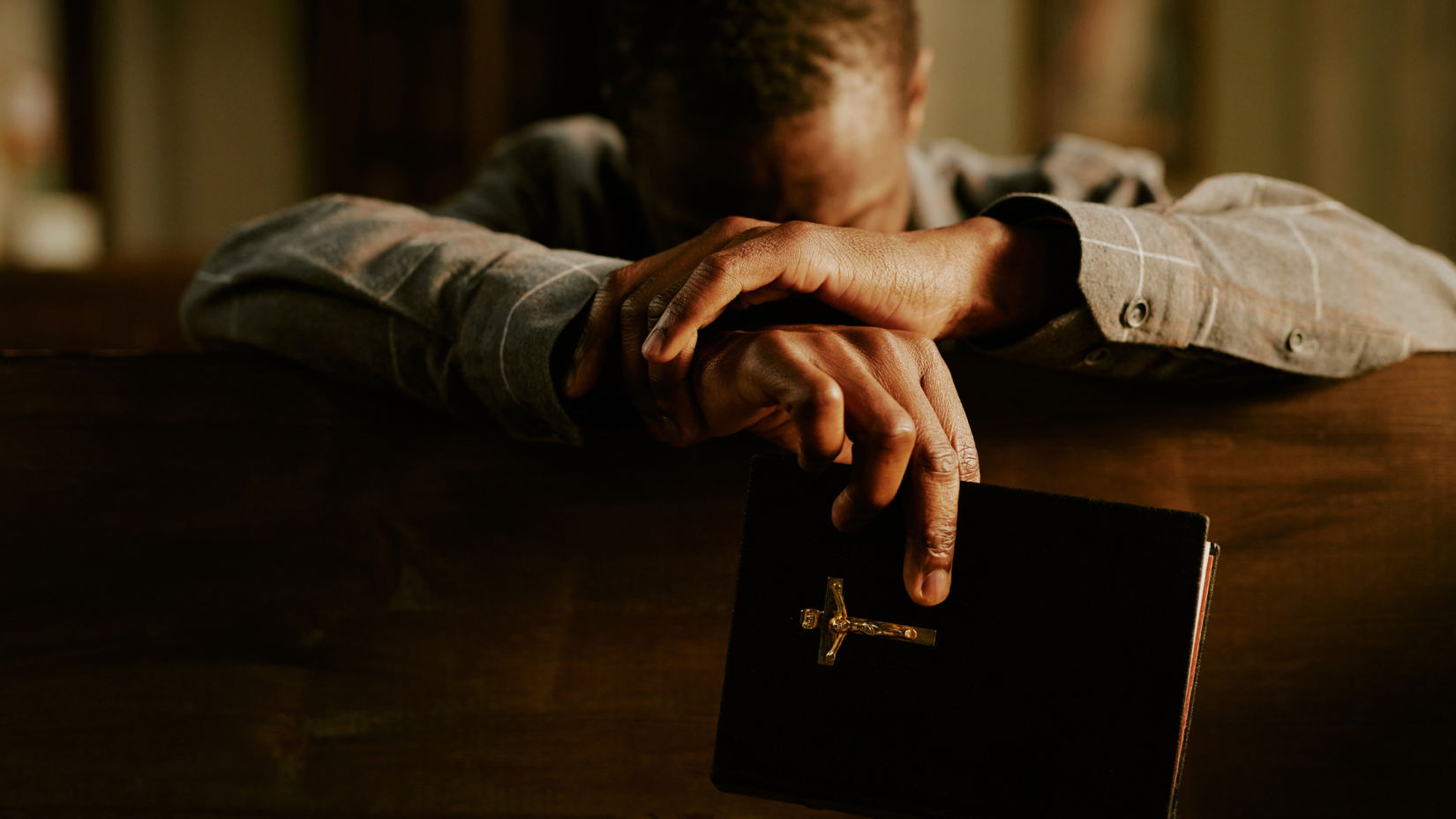
Is anyone sick?
by Brax Carvette
I’ve heard that this winter, we’ve had the worst flu season in fifteen years. Five years ago, our world was hit with the COVID-19 pandemic. A hundred years ago, there was the Spanish Flu. Before that, the Black Plague. Throughout human history, people have struggled with sickness, chronic illness, and pain. That’s why James’ words this week remain relevant—and perplexing:
Is anyone among you sick? Let them call the elders of the church to pray over them and anoint them with oil in the name of the Lord. And the prayer offered in faith will make the sick person well; the Lord will raise them up. If they have sinned, they will be forgiven. Therefore confess your sins to each other and pray for each other so that you may be healed. The prayer of a righteous person is powerful and effective.
If you’re like me, you read this passage and think, “Wow, how cool! But what about all the times we pray for someone, and they don’t get healed?” I’m sure you can recall a time when you prayed for a loved one who was sick, and they didn’t recover. So how can James say, “the prayer offered in faith will make the sick person well” (emphasis mine)?
Some interpret this passage to mean that James isn’t actually referring to physical sickness. The Greek word for sick is more frequently used in the New Testament to describe spiritual weakness. If that’s what James is referring to, then this passage would be about how the elders should pray for those who are spiritually weak, leading to their spiritual healing.
This interpretation is appealing because it sidesteps the difficult reality that sometimes we pray for healing, and it doesn’t happen.
But if you want to accept this interpretation, I need to point out some problems with it:
1) It’s hard to imagine a spiritual weakness that isn’t connected to sin in some way. So, it seems odd that James would say, “if they have sinned, they will be forgiven.”
2) James draws heavily from the Gospels, and Mark 6:13 describes Jesus’ followers: *“They drove out many demons and anointed many sick people with oil and healed them.”* This closely parallels our passage and strongly suggests that anointing with oil was a practice for physical healing.
3) Immediately after this passage, James references Elijah, who prayed that it wouldn’t rain for three and a half years, and it didn’t. That wasn’t a spiritual drought—it was a literal one. It would seem odd for James to use Elijah’s prayer as an example if he were talking about spiritual sickness.
For these reasons, I’m persuaded that James really is talking about praying for physical healing.
But that brings us back to our original question: What about the times we pray, and someone isn’t healed?
First, let’s be clear about what James is not saying.
James is not saying that sickness is always a result of personal sin. In verse 15, he points out that if the sick person has sinned, they will be forgiven. While Scripture does suggest that sin can sometimes lead to sickness (Psalm 32:3–4; 1 Corinthians 11:30), that is not always the case. In John 9:3–5, Jesus specifically states that a man’s blindness was not due to sin but was meant to display God’s glory. Sickness is difficult enough without adding unnecessary guilt, believing we’ve done something to deserve it.
Second, James is not saying that a lack of faith is the reason someone isn’t healed. Paul, a man of great faith, pleaded three times for God to remove his “thorn in the flesh,” yet God’s response was, “My grace is sufficient for you, for my power is made perfect in weakness” (2 Corinthians 12:8–9). Paul’s unanswered prayer wasn’t due to a lack of faith but because God had a greater purpose.
Third, James isn’t saying that if the elders pray for healing and it doesn’t happen, it must be due to sin or lack of faith on their part. Consider Mary and Martha’s request to Jesus when their brother, Lazarus, was sick (John 11:1–7). They sent word to Jesus, asking him to come and heal Lazarus. Jesus responded, “This sickness will not end in death”—yet he waited two more days, ensuring that Lazarus did die. Why? Because there was a greater purpose at work: God’s glory.
Jesus was about to ruin Lazarus’ funeral with life.
So, is James promising healing every time someone in the church falls ill? No, I don’t think so. God’s purposes in sickness often go beyond what we can see. From the very beginning of his letter, James tells us to “count it all joy” when we face trials, because God is using them for our good (James 1:2–4). Consider Job, who experienced immense suffering—not because he had sinned, but because he was righteous. And yet, through his suffering, God displayed His compassion and mercy (James 5:11).
So why is James writing this?
He’s telling us what to do when someone is sick. He reminds us that God is the source of life, capable of defeating even death. Therefore, when illness strikes, we should gather believers around us and ask the Lord of Life to bring healing. We do this in faith—not as if we’re manipulating God, but trusting him as our loving Lord, who may say “no” because he has greater purposes.
Let me close by saying this: if you are sick, we would be honored to pray for you. You can contact us through our website’s Contact page or call us (the number is listed there as well). Chronic illness, cancer, or any other affliction is difficult enough—don’t go through it alone. Let the body of Christ walk with you, and may you experience Jesus’ compassion, mercy, and love in the midst of it.

Brax Carvette, Youth Minister
Brax is the youth pastor at NorthRidge Fellowship and has been at NorthRidge since 2006. He and his wife, Jessica, have a son, two daughers and they live in Elk River, Minnesota.


Contact Us
If you have questions about an article you read on our blog, reach out to Brax Carvette, Blog Editor at braxc@nrf.life or call 763.270.6425.
Share our Blog on Facebook!










